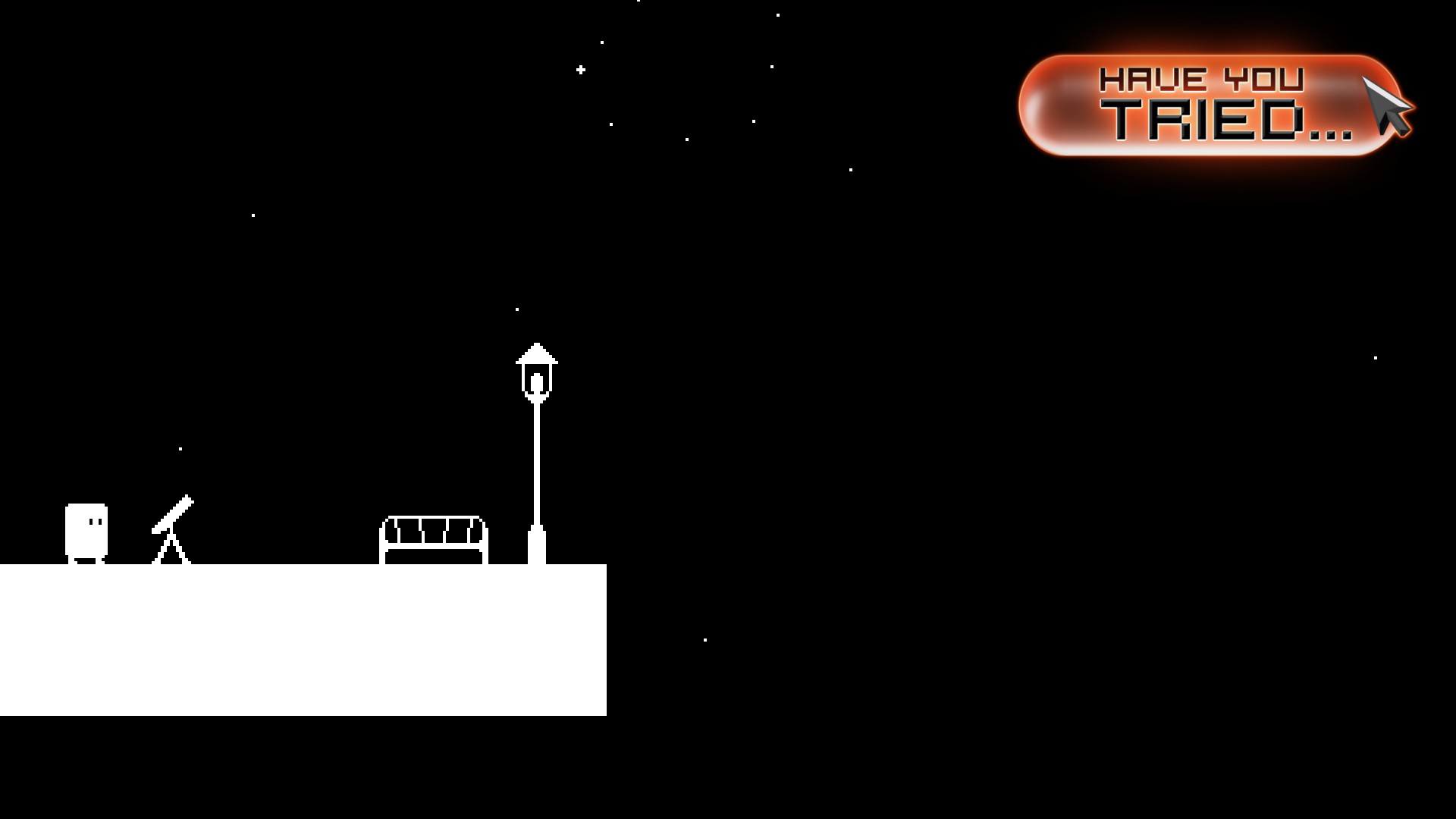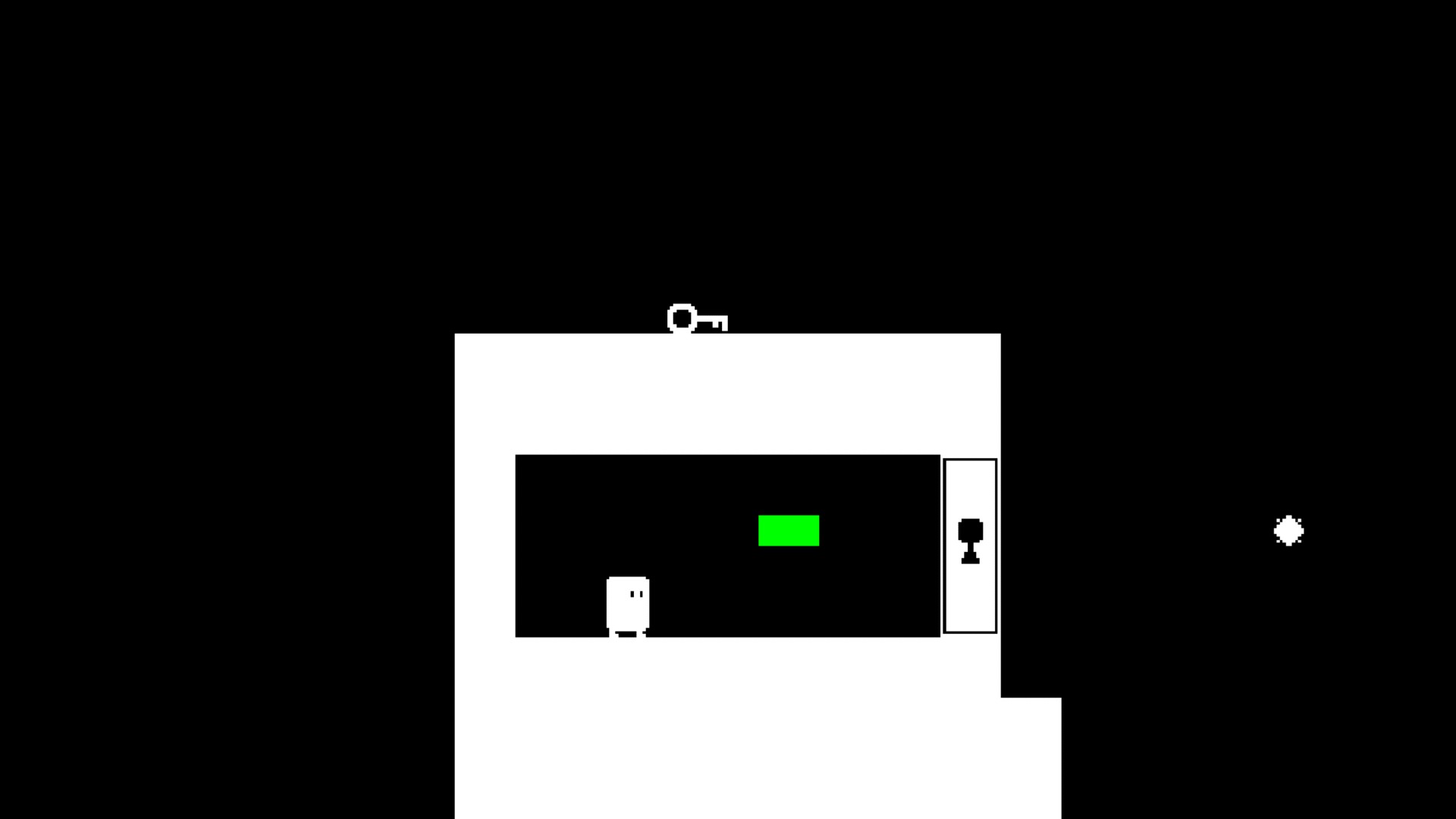Have you tried… Shifting scale and breaking your brain in Skala?
Skala is the best puzzle game I've played in ages – and it's free!

In my book, a good puzzle game is determined by how well it articulates its gimmick. Portal uses its titular wormholes to mess with physics. Braid lets you rewind time to rework obstacles and perspectives. Return of the Obra Dinn is essentially one sprawling logic conundrum. And Skala, a free puzzle game by Gustav Almstrom that launched on Steam this week, lets you tinker with scale in order to overcome its 90 brain-teasing levels. What starts out straightforward quickly snowballs into a head-scratching affair, whereby each stage teaches you something new, that in turn informs how you tackle later, more challenging levels.
With simple but well-matched visuals, a striking monochromatic palette with the odd flash of color, a wonderfully relaxing melodic soundtrack, and a patient but rigid learning curve, Skala has me hooked. I love a good puzzle game, I must say, but this is one the best and most original I've played in some time.
Big box, small box

In Skala, progression is gated by collecting one single star at the end of each level. In level one, that entails simply walking from one end of the screen to the other, picking up the star, and moving on. Level two introduces steps that must be hopped over to reach the end-of-level goal, while level three includes a pit that must be leapt across to succeed. Level four, however, is when things begin to get interesting, because it's here that Skala's primary gimmick – manipulating scale – comes into play.
Facing a wider chasm than the one featured in the previous level, jumping across is no longer possible. But shifting the ground below is – which looks something like this:
A few variations of this ground-moving quandary follow, before later levels switch things up further still. The scale and size of the end-of-level star, for example, can be tinkered with – so as to draw the star nearer and within touching distance – while other later levels demand that you squeeze the star and the landscape in concert in order to progress.
That, on the other hand, looks something like this:
I promise I won't spoil the outcome of every level here, but even with the above examples, you can start to see how quickly things get more complicated – and, in turn, how satisfying overcoming Skala's most brain-breaking set-pieces can become. The stages that require you to adjust the scale of the playable sprite itself can get messy, while the introduction of keys and locked doors add even more layers to puzzles down the line. The fact that you can play levels out of order too ends up giving things a sort-of Metroidvania feel, whereby knowledge gleaned from more advanced stages can be applied to those nearer the beginning of the game.
Sign up to the GamesRadar+ Newsletter
Weekly digests, tales from the communities you love, and more
I'm not ashamed to say, I spent a good 45 minutes trying to solve one particular conundrum that I just could not work out how to get past. It took me more attempts than I care to admit (actually, truth to be told, I lost count after the ~20th try), but, like any puzzle game worth its salt, arriving at that elusive 'EUREKA!' moment was a feeling second to none. Again, no more solutions, but here's a look at the level's starting point (the aptly named, 'Cell'). The floating green block is the only item that can be scaled up, shrunk down, or moved around:

Any ideas? If so, you've got a sharper mind than me. But that's okay, because while Skala never once takes you by the hand, it is forgiving enough and is never unfair. If you can't get past one particular level, that's simply on you because the game has given you all the tools you require to succeed, and it has shown you how to do so in its previous stages. Again, being able to skip ahead if certain levels prove too much is a great thing here, because I inadvertently worked out how to beat earlier stages by succeeding in later ones on more than one occasion.
I'm now about three-quarters of the way through Skala's 90 challenges, and it's really putting me through my paces. If you fancy putting yourself (and your brain) to the test too you can do so via Steam where Skala is, somehow, free of charge.
Check out more cool indie projects in our best new indie games roundup.

Joe Donnelly is a sports editor from Glasgow and former features editor at GamesRadar+. A mental health advocate, Joe has written about video games and mental health for The Guardian, New Statesman, VICE, PC Gamer and many more, and believes the interactive nature of video games makes them uniquely placed to educate and inform. His book Checkpoint considers the complex intersections of video games and mental health, and was shortlisted for Scotland's National Book of the Year for non-fiction in 2021. As familiar with the streets of Los Santos as he is the west of Scotland, Joe can often be found living his best and worst lives in GTA Online and its PC role-playing scene.


